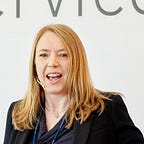Things I frequently recommend
I have a go-to list of books, blogs and videos I recommend as particular topics or challenges come up in conversation. I thought it would be a good idea to list some of them together, in one place.
Books
Thinking Fast and Slow — Daniel Kahneman
Helps explain why smart people do stupid things. And why you, a reasonably smart person, do stupid things. Some of the studies have since been shown to be low quality, which is a shame. The general points still make tons of sense though. Quite long.
Radical Candor — Kim Scott
How to deliver honest but compassionate feedback in a humane way. This was essential reading for me when I became a people manager. Some massive caveats here: it’s written from a Silicon Valley perspective, and some things which are radically humane there read very differently from a European viewpoint. I don’t imagine anyone would adopt everything here wholesale. Also, the title has sometimes been mis-appropriated to justify being a horrible person. “I was just being radically candid.” Just… no. That’s not what the book is about at all. There’s also a podcast — Episode 2 has a framework for giving constructive feedback, which I also recommend.
Five Dysfunctions of a team — Patrick Lencioni
If we don’t trust each other, conflict doesn’t feel safe, so we avoid it. Without conflict, we stay silent while decisions are made that we can’t then commit to. Without commitment, we can’t be held accountable, and without accountability, we don’t get results. Basically that’s it, but it’s much easier said than done, and the book (written as a fable) is still worth reading. There’s also a workbook.
On Writing Well — William Zinsser
I love this book. It’s a joy to read; inspirational as well as instructional. If you want to be a better non-fiction writer, whether it’s blog posts or writing for publication, you could do a lot worse than read this.
How to Measure Anything — Douglas W Hubbard
Confession: I’ve never finished this book. But the Applied Information Economics stuff in here is very helpful for deciding what research, experiment or prototype to try next. There’s a workbook, which I also haven’t read. If you get that far, let me know if I should!
Resonate — Nancy Duarte
This book totally changed my approach to presenting. It starts out by challenging you to think about your audience and how you want to change them, and uses techniques from screenwriting to help you take them on a journey. (This link is the interactive online version, which she’s updated several times, but there’s also a physical book and ebook.)
Videos
TED: Dan Pink — The puzzle of motivation
It’s about motivation, but also why some workplaces and jobs are great, and some feel like drudgery. You could read his book, Drive, or you could watch the video for the key points in a lot less time. If you’ve heard me talk about autonomy, mastery and purpose (the three key ingredients of intrinsic motivation), they’re from here.
TEDx: Deborah Frances White — Charisma vs. Stage Fright
You don’t need to feel confident to look confident; if you change some physical behaviours, you’ll look confident and will probably start to feel less nervous. Deborah is an incredible trainer — I was lucky enough to attend one of her corporate sessions before she got mega-podcast-famous — and this distils some of her key messages into 20 minutes.
Organisational Complexity and Wardley Mapping — Simon Wardley
Wardley mapping is a valuable technique for understanding product evolution and developing strategies. There are several videos online of Simon Wardley’s signature talk Crossing the River by Feeling the Stones, but I liked this verison, from a meetup I was at in February 2022. Starts about 5 minutes in.
Blog posts
Cynefin for everyone — Liz Keogh
Repeating the same actions and expecting a different outcome is the definition of madness. Or a complex, adaptive system. Some things are unordered — they cannot be predicted, and they don’t react the same way twice. Treating them like ordered systems leads to failure.
The Cynefin Framework is something that, once it’s in your head, helps a lot of things suddenly make sense. If you want to go deeper and have an hour to spare, search for videos of Dave Snowden’s talks, but Liz does a great job of explaining succinctly better than anyone else I’ve found.
Building Local Welcome by tackling our riskiest assumptions — Wil Myddleton
An inspirational post about what I believe is the core of agility — avoiding expensive mistakes by testing riskiest assumptions as early and as cheaply as possible. It’s not even about software, so it’s a great explainer to share with non-tech folks.
Don’t ask forgiveness, radiate intent — Elizabeth Ayer
I stumbled across a similar approach years ago, but this clarified my thinking. Expecting forgiveness is a position of privilege not everyone has. Asking permission puts responsibility onto someone else to say Yes (so they take some of the responsibility if it goes wrong). This approach only requires them to say No if they know there’s a reason not to proceed. There are sneaky ways to subvert this and it doesn’t give permission to do that, but used conscientiously, in good faith, it’s great advice.
